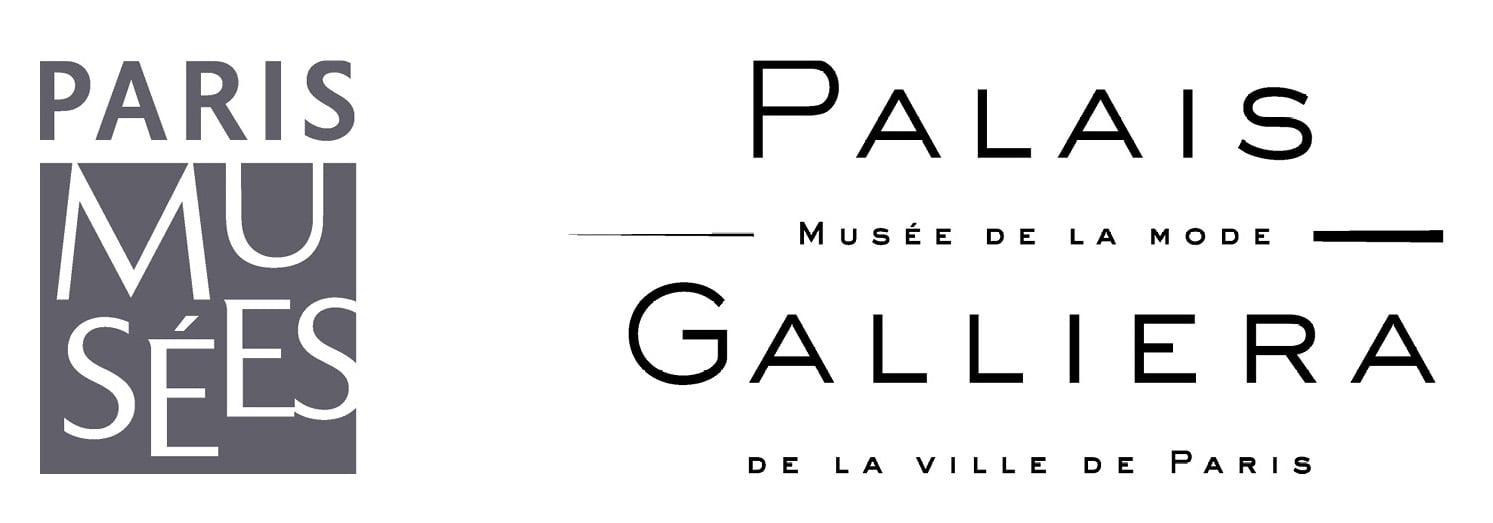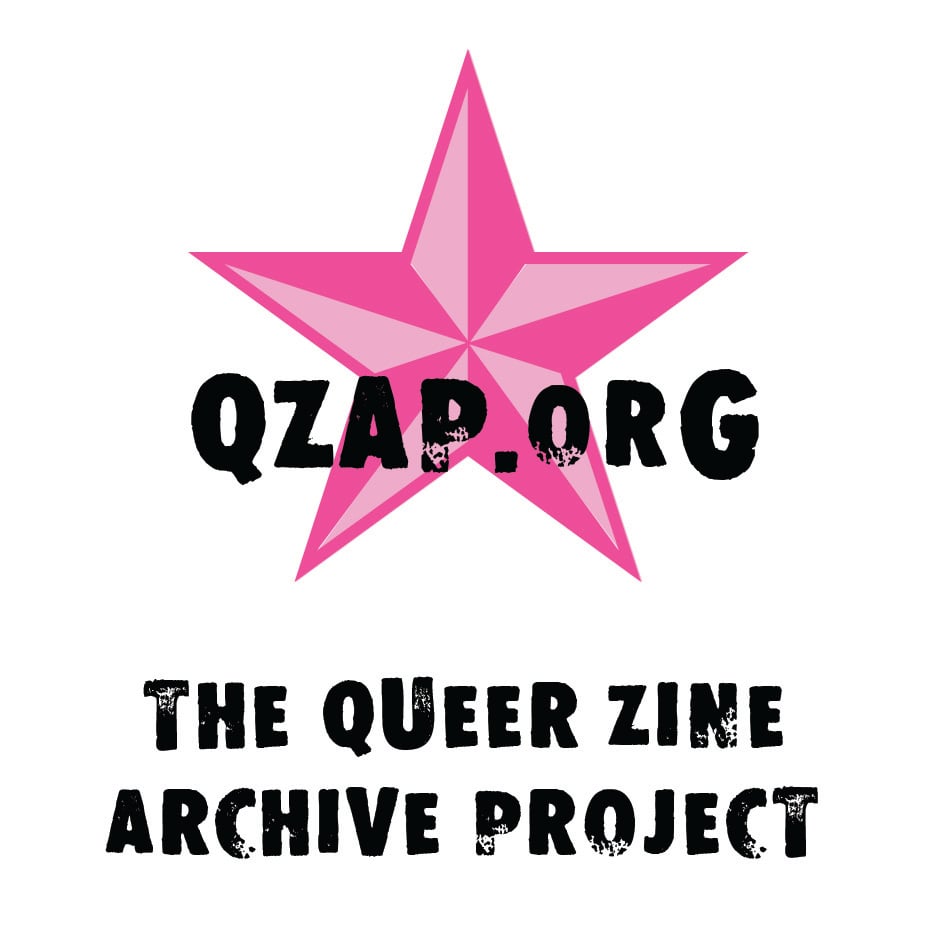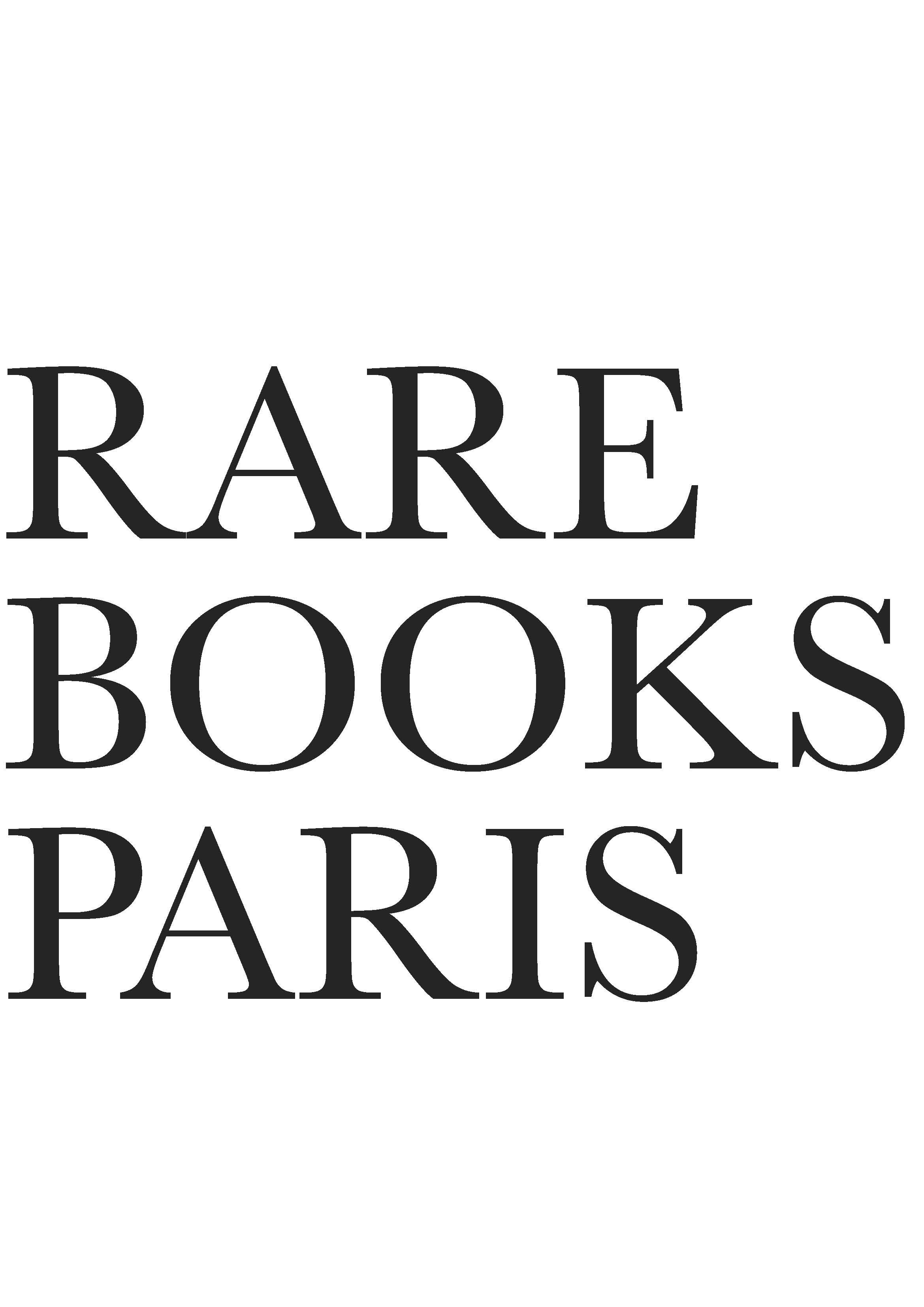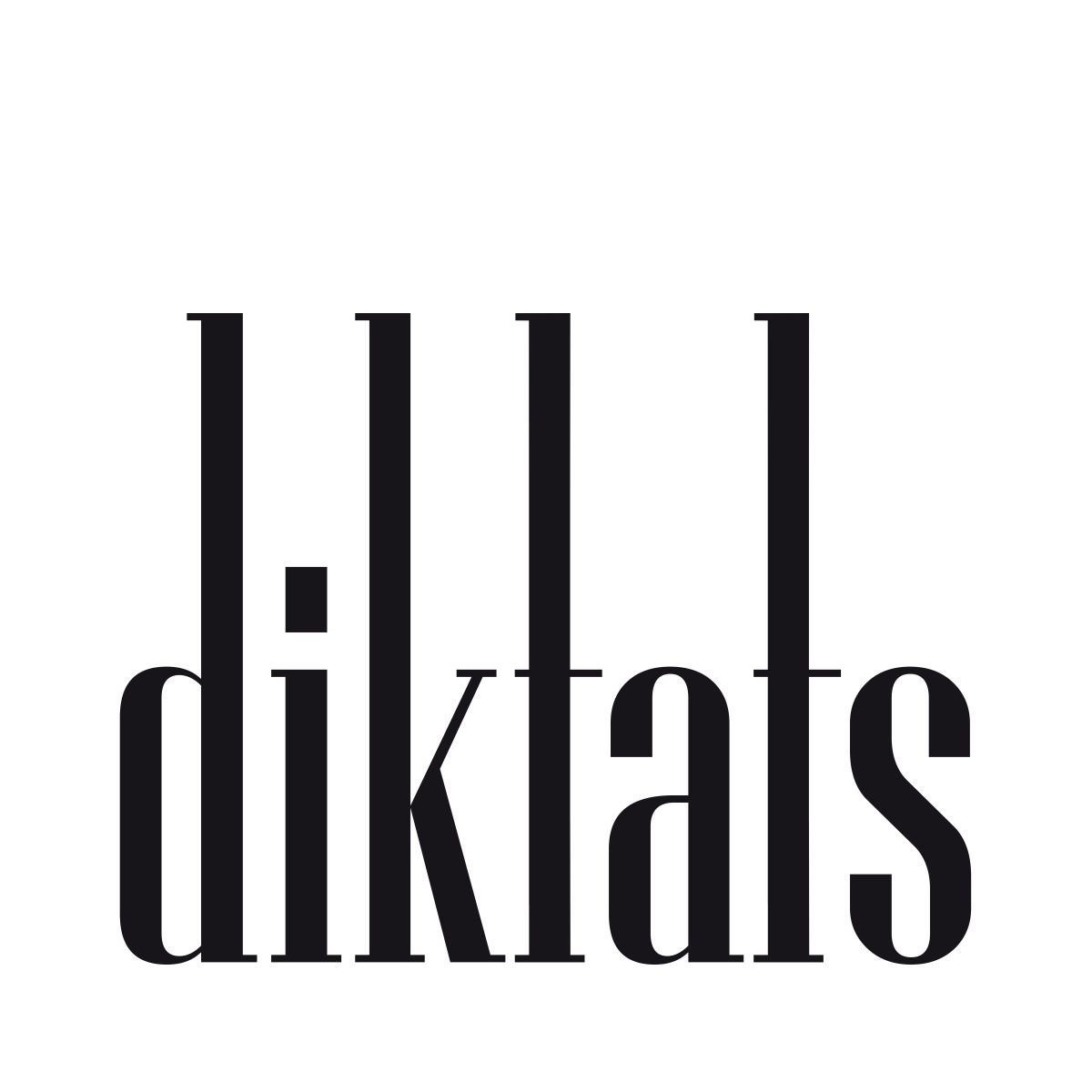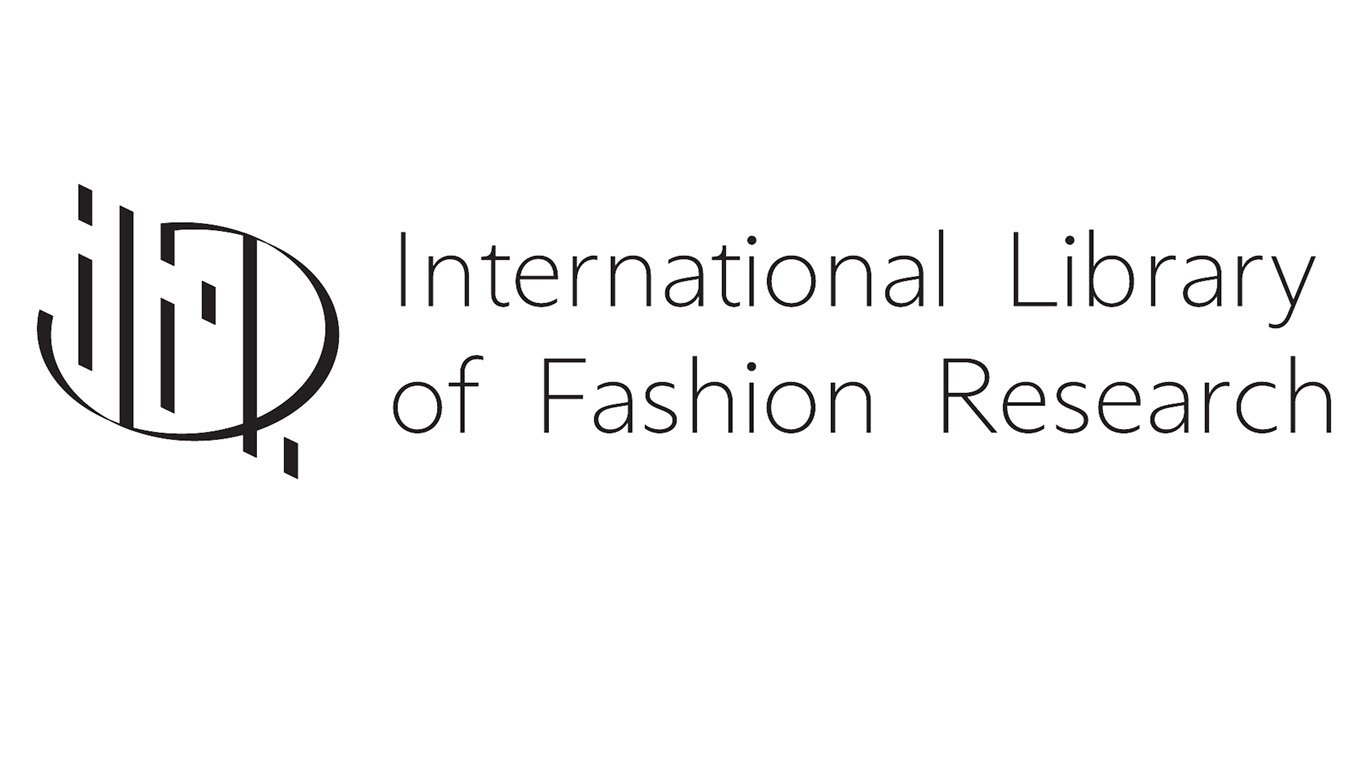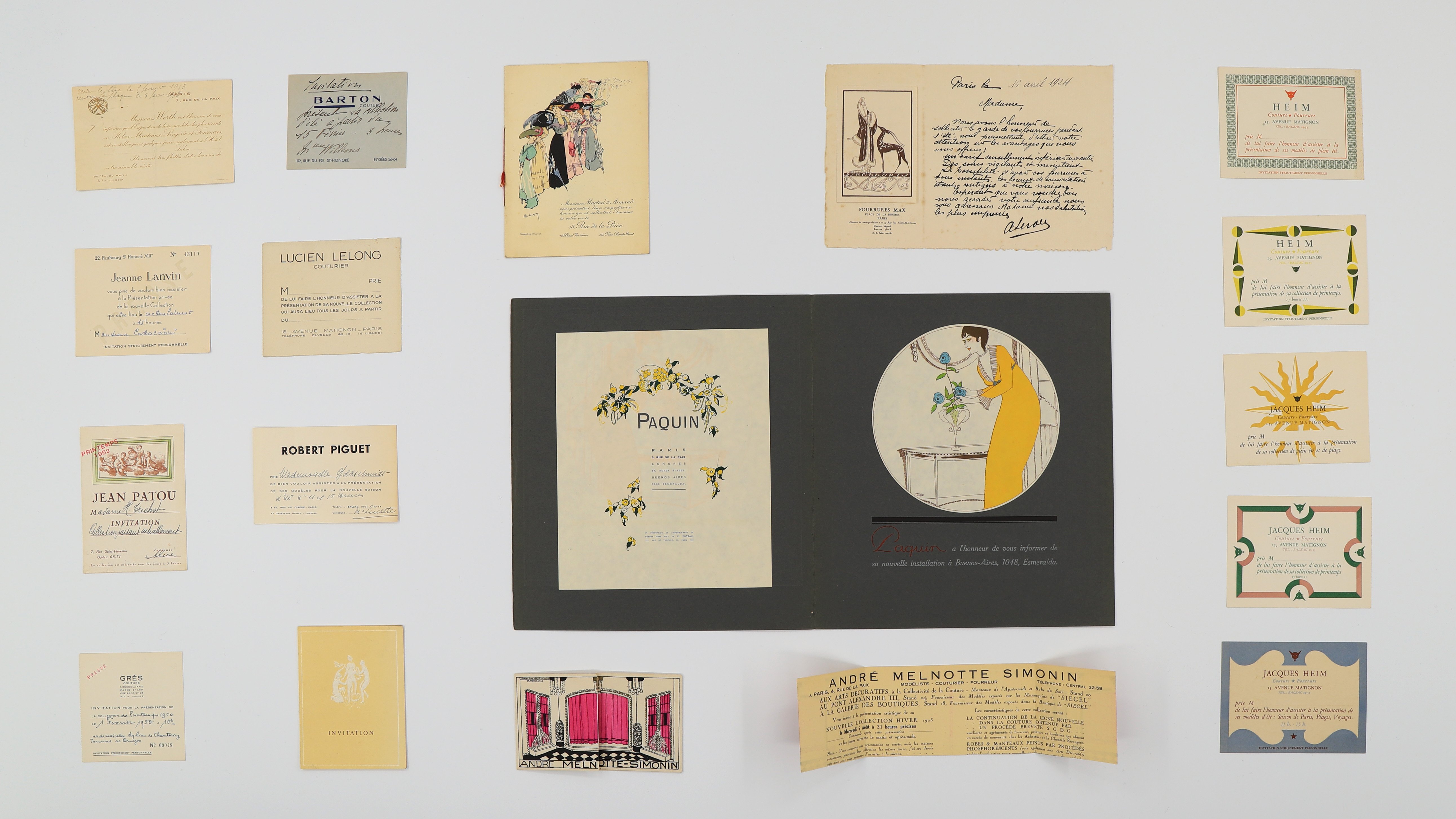
Invitations Archives from 1920s to 1940s. Collection: Diktats. Owner: Antoine Bucher and Nicolas Montagne.
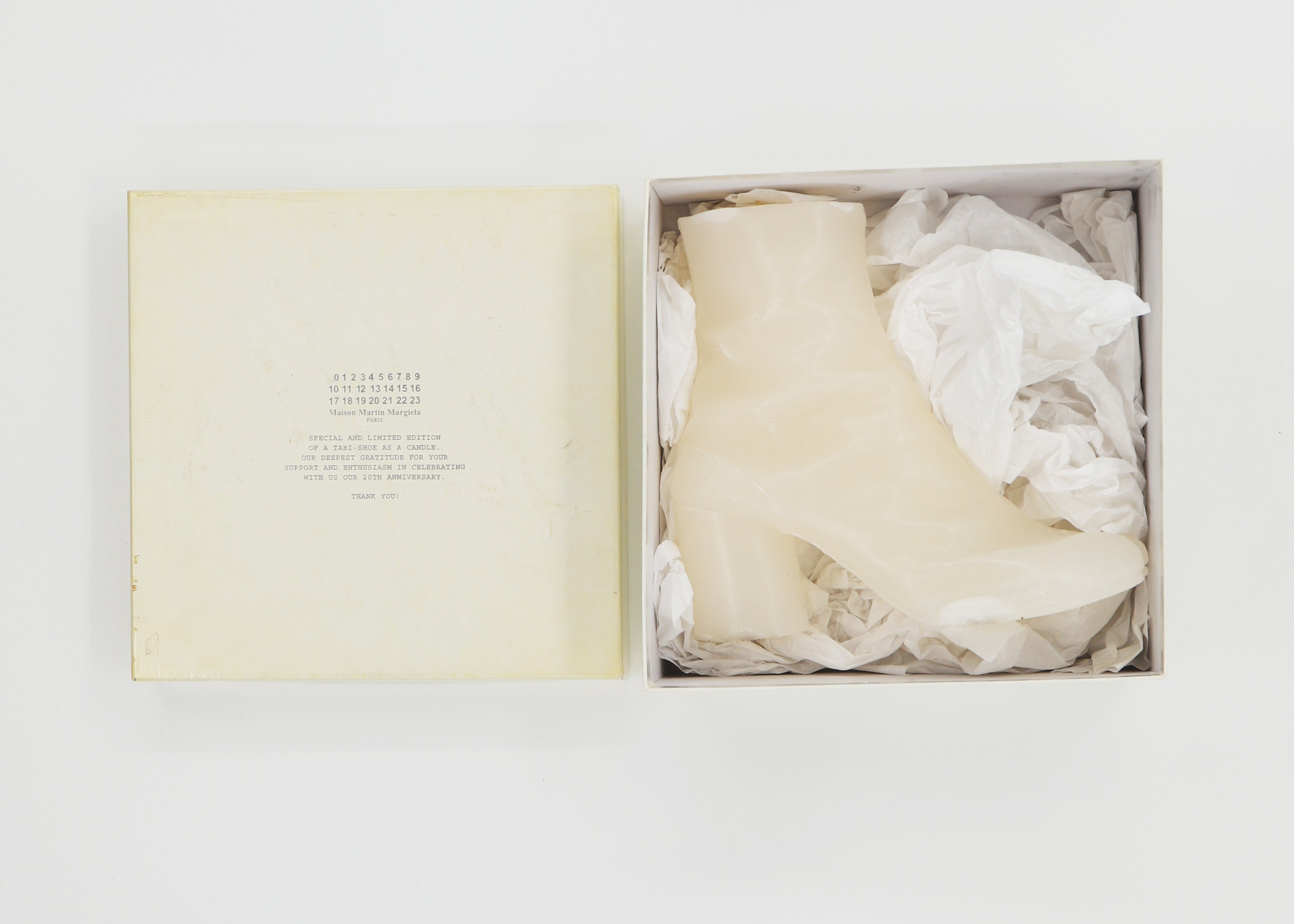
20th anniversary Maison Martin Margiela Box with A Tabi Candle. Collection: RareBooksParis. Owner: Gregory Brooks
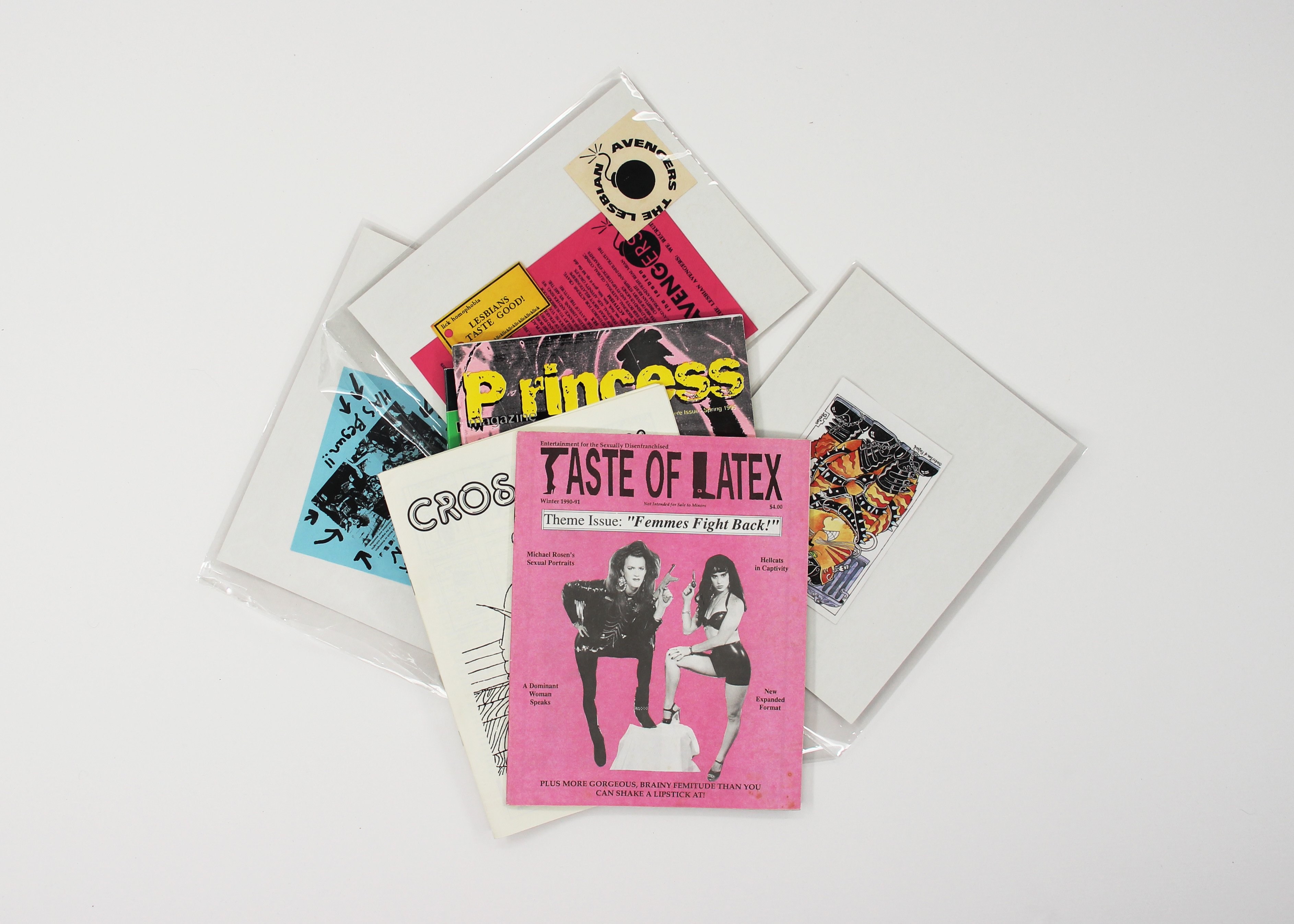
Selection of Zines from the Queer Archive Zine Project. Collection: Queer Zine Archive Project. Owner: Milo Miller
